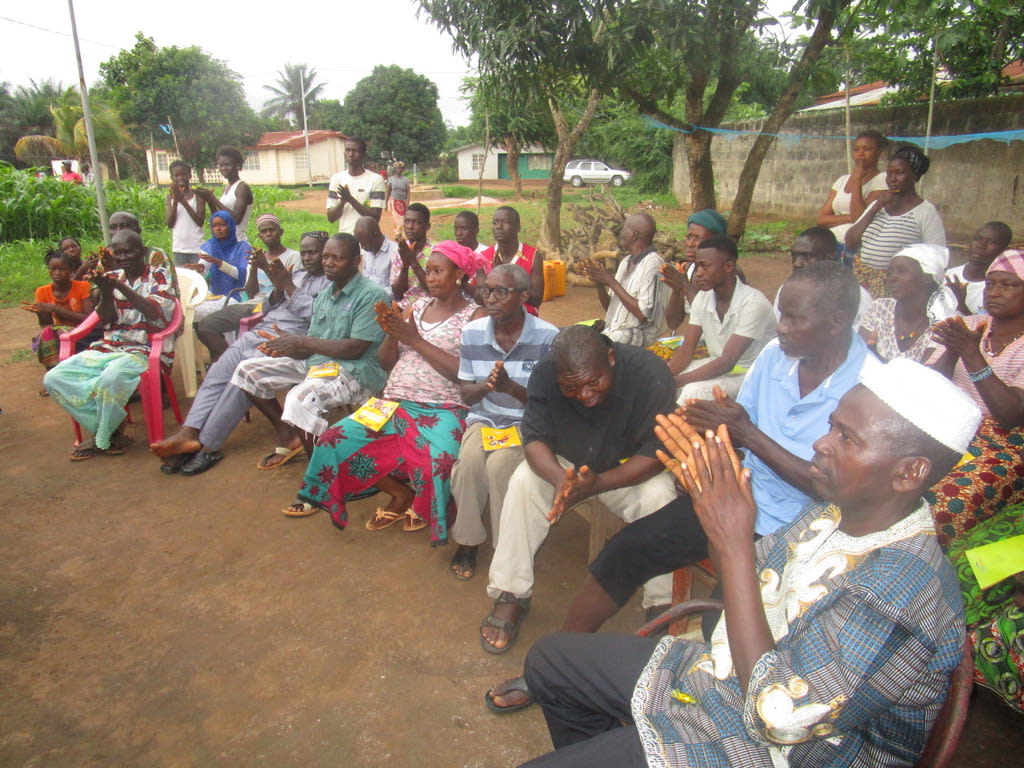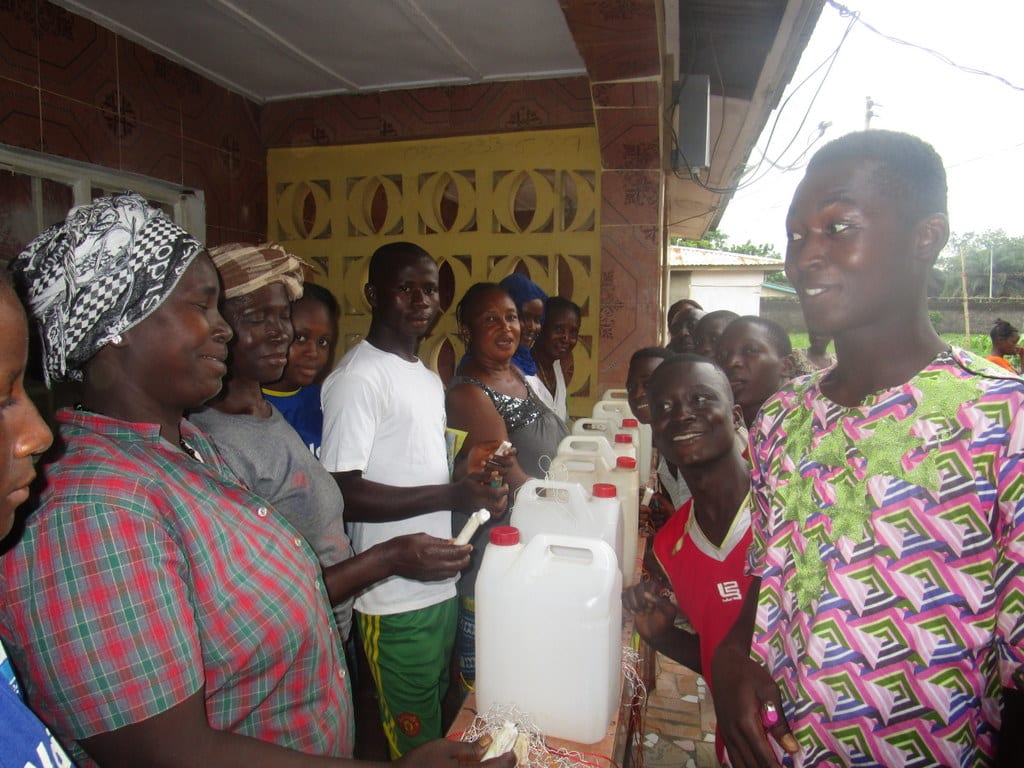This project is a part of our shared program with Mariatu’s Hope of Sierra Leone. Our team is pleased to directly share the below report (edited for clarity, as needed).
Welcome to the Community
Benke Community and the surrounding communities have benefited from the generosity of the catholic church more than any other area in the chiefdom. This street and area is named after its first inhabitant, Mars Turay, an employee of the church. In the olden days, this part of the chiefdom was used as a foot path for the traders that came from Lungi Town to sell their fruits and vegetables to the other traders in Suctarr.
Benke Community has grown immensely over the years. Now almost all of its streets are passable with a vehicle or motorcycle, making the flow of people and their businesses a lot easier. The community has two churches and one mosque; a rarity, since there are normally more mosques than churches.
The community is made up of petty traders, health workers, teachers and gardeners. More produce come from this part of the country than anywhere else. The community used to only have the nearby Saint Augustine Junior Secondary School's well for their water supply. The priests and teachers witnessed how disruptive it was to have the surrounding community constantly coming to fetch water; the children were disturbed from their lessons on a minute by minute basis. With so much outside interference, the chances of the children learning were slim to none. The church decided to construct a well for the community to lessen the burden on their school's well. One of the teachers lived nearby in the same neighborhood, so he decided to build the well on his property with the promise that even if he is long gone, the well will be left for the community. The deal was struck, and the well was built. Much later, the first resident of the community has left the legacy of a well and a street named after him.
Water Situation
We met Benke Community a few years after this well's installation, when it needed important repairs and development. Our staff came alongside the community and helped them make repairs, also offering our support in hygiene and sanitation training. We committed ourselves to continuous clean water in this community, and have been back several times to visit. Beyond our visits, we started receiving extra calls from the community between the months of March and July. In March, it started taking locals a long, dedicated effort to make water come out of the pump. By April, no water would come out at all. After removing the pump and looking inside, our staff confirmed that during these drier months, there was no longer any water in the well.
We've also visited this well on Turay Street when it is serving the community, and it's amazing to see how many people rely on it. Whenever there's water flowing, people have their jerrycans lined up all the way out to the street.
After years of service, the environment changed in a way that negatively impacted the water sources in Benke Community. The wells sit abandoned until the rains return, and even then it takes a while for the water to recharge. To capture the lighter rains, community members put empty containers outside.
There are other wells in this community, but they have similar issues. We will be overhauling both this well and one of the other three to ensure that the well perseveres through the dry season! When our well on Turay Street dries up, women and children are forced to wait at line in one of the other wells in a different part of the community. This search for other working water sources puts women and children in danger as they walk along less familiar busy roads.
Sanitation Situation
Over half of households here have a pit latrine. It's interesting what passes as a latrine; many of them are holes in the ground surrounded by plastic sewn together and held up with sticks. When the wind blows hard enough, one can see right into the latrine!
Less than a quarter of households have hand-washing stations, and less than half have simple tools like dish racks and clotheslines. Garbage here is considered a commodity, so it is treated with care. Huge pits are dug for everyone in the community, and it is burnt on a regular basis. The ashes and trash are distributed among the community's gardens and farms.
Plans: Hygiene and Sanitation Training
There will be hygiene and sanitation training sessions offered for three days in a row.
Not many hand-washing stations were observed here. After our visit, the hygiene and sanitation trainer decided it would be best to teach community members how to build a tippy tap (a hand-washing station built with a jerrycan, string, and sticks). They will use these tippy taps for hand-washing demonstrations, and will also teach about other tools like dish racks and the importance of properly penning in animals.
These trainings will also strengthen the water user committee that manages and maintains this well. They enforce proper behavior and report to us whenever they need our help solving a serious problem, like a pump breakdown.
Plans: Well Rehabilitation
The well marked for this overhaul is dry from March to July and needs major work to supply adequate, clean water to the community year round. The pump will be removed, and a man will be lowered inside with a hand auger. This hand auger will allow the team to drill several meters deeper to hit a sufficient water column that will ensure the well supplies water throughout the drier seasons. As the team drills, casing will be installed, transforming this hand-dug well into a pseudo-borehole. PVC piping will connect this lower system directly to the pump, a construction that we know will also improve the quality of water.
Once this plan is implemented, everyone within the community will have access to safe drinking water in both quality and quantity, even through the dry months.

 Protected Dug Well
Protected Dug Well





























